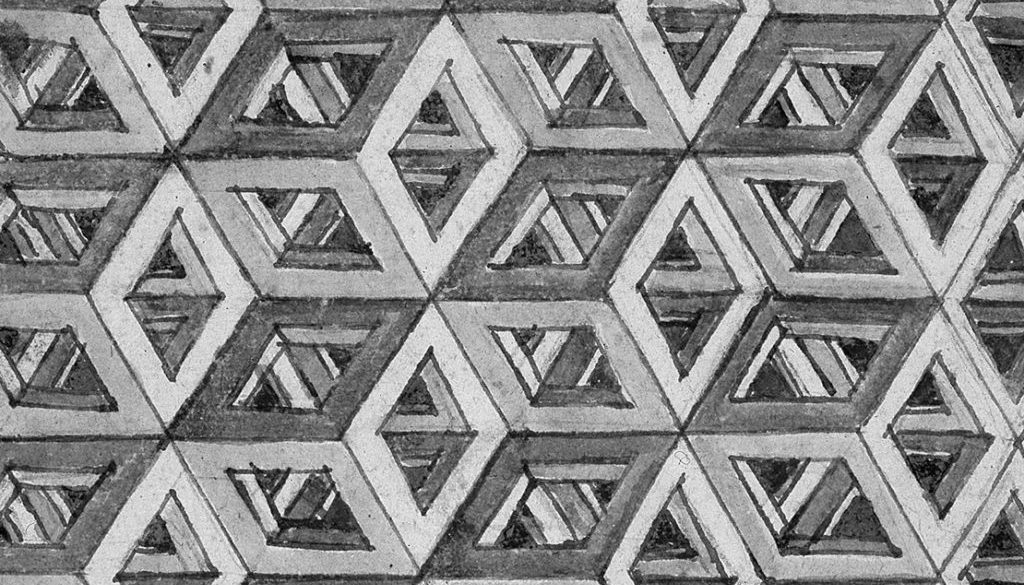Financial crisis
and progress

I had hoped that the first wave of the protracted financial crisis might result in a radical re-think not only of how we operate our financial systems but also of the underlying principles. It began with the sub-prime mortgage crisis. The name itself indicates much of what was wrong. Bad, unreliable, insecure mortgages are described a “sub-prime” – a bit like describing stepping of the edge of a cliff as risky. The obscure complexity of the financial instruments, as signalled by the language used – e.g. “derivatives” and “short trading” – goes beyond a matter of jargon, serious though that is. They obscure our seeing something for what it is – basically a duplicitous system in which there is more debt than credit to meet it and which is lubricated with selling packages of debt as assets.
The response then and now is to resort to the old measures. Quantitative easing (i.e printing money) and so on. Propping up the crumbling edifice with conventional devices that do not address the fundamental purposes of the economy. The debate is now about how far the austerity can be tempered by measures to encourage growth. “Growth” is the mantra. What is meant is growth of Gross Domestic Product. There is only one kind of growth that is measured and is equated by politicians with what we want and need. “Our party alone will deliver growth”. The kind of growth that is meant is based on a notion of material and technological progress that was born in the Renaissance. But does this kind of growth really represent progress, and, if so, progress of what. Can we redefine progress in a way that is not predicated on endlessly increased consumption? If we define progress as a net increase in human well-being in relation to the basics I defined earlier in this blog, we can begin to scrutinise progress in a way that is not dependent on conventional measures. I know that “human well-being” is rather nebulous, but I think we can recognise what is meant.
A sense of progress may be wholly necessary to a human society. I think that the arts and sciences may provide a potential model for progress without ever-increasing consumption of natural resources. The generation of Leonardo and Michelangelo built upon how Masaccio and Donatello portrayed the human figure. This does not mean that the two High Renaissance masters were better artists, but we can recognise that they could achieve some things that the predecessors could not in communicating profound truths through their understanding of the human body.
If we transfer this model to the health service, we can perhaps define the direction of travel in a more balanced way, asking which developments really make a significant contributions to human well being. These developments may well be widely applicable low-tech interventions rather than feeding the high tech research machines that seek hugely expensive means to prolong horribly painful lives beyond any point at which human well being is involved. We tinker at the edges of the widespread and obvious problem of obesity, for example – and I am including the obesity of the bankers and traders in this. We fiddle around with hyrdo-carbon consumption, without asking really searching questions about what we really need in individual human terms to give us lives worth living. I realise that the transition from “progress” in Renaissance art to progress in human well-being is a bit slippery, but we need less conventional ways of deriving our criteria if we are to be a humane society.
On a primary school trip from Clarence Road School in Windsor to the White Horse Downs, Ruth South, the daughter of the history master at the grammar school began to run down a steep hill. She gained pace… and gained pace. Her rival runner dropped out the race. Ruth covered 50 yards in a time previously unparalleled in the annals of our school athletics. She ended by shattering teeth in a sickening face-down collision with a tarmac road. At present we seem to be more concerned about measuring the the speed record than the likely end of the race.
September 22, 2011 @ 2:20 pm
The other side of me thinks, what is this guy doing? Why should his views be of any interest to anyone else?
April 9, 2020 @ 6:02 pm
This comment has been removed by a blog administrator.